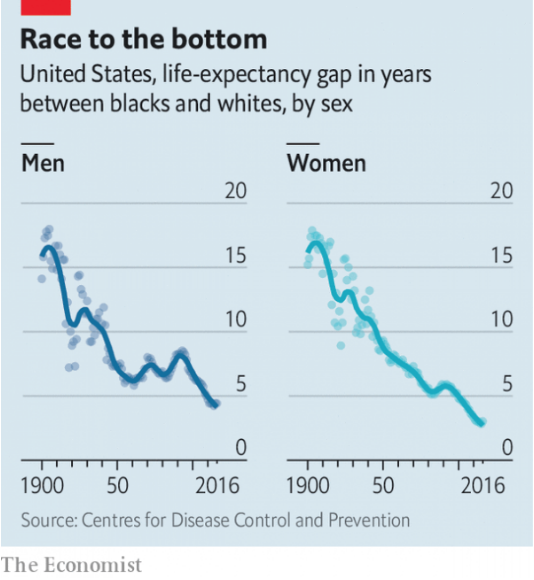The recent trade deals (Nafta 2.0, China, etc.) certainly look like failures. That’s my view and also the view of Paul Krugman. More generally, I see governments as being big and clumsy organizations, and assume that the most straightforward interpretation of their motives is usually the correct one. Tyler Cowen offers an alternative perspective:
Elsewhere you will see Paul Krugman suggesting Trump has lost the trade war, but I don’t think he comes close to even seeing what the trade war with China is about. No matter what Trump says, the trade war is not about lowering the trade deficit. It is about (for a start) two major considerations: a) ensuring that national security-motivated partial economic decoupling takes place on terms not so unfriendly to America, and b) giving America levers to make sure China does not make such significant inroads into the world’s tech infrastructure, most notably with 5G but not only.
The stipulation of Chinese purchases of American exports, which probably they will not and cannot meet, is in fact a lever to give the United States enforcement power over the less tangible parts of agreement, which is indeed most of the agreement. We want China to be in default of the agreement terms, so we may threaten them with tariffs to enforce compliance elsewhere, and so that is a better rather than worse outcome for the United States.
I’ll respond to the specific points made by Tyler and then make a broader argument.
1. As far as I know, the “phase one” trade deal with China does not make economic decoupling any less painful for the US. If it does, I’d like someone to explain which provisions do this.
2. If decoupling were our goal, then it would be odd to insist that China become more open to trade and investment with the US, changes that would make China richer and more powerful. Is that how we should be treating an enemy? It’s not how we treat Cuba. (I don’t see China as our enemy, although I understand that much of the foreign policy establishment disagrees with me.)
3. I don’t believe that the trade war gives “America levers to make sure China does not make such significant inroads into the world’s tech infrastructure”. We may have some levers in this area, but they have nothing to do with the trade war. The US is in a very weak negotiating position on trade, as Trump’s political position is much weaker than Xi’s.
Tyler seems to acknowledge that at first glance his hypothesis doesn’t seem to make much sense. Our trade demands don’t seem to align at all with the foreign policy goals that he thinks are motivating the trade war. His explanation, however, seems a bit too clever to me. He’s right that China will not live up to its promises to hit certain import targets, but I don’t understand his claim that this gives us extra leverage to use in achieving the foreign policy goals:
We want China to be in default of the agreement terms, so we may threaten them with tariffs to enforce compliance elsewhere
If they are not complying “elsewhere” then we can simply impose tariffs in retaliation. The silly export targets don’t give us any additional leverage. It’s not like when the Feds got Al Capone for taxes because they couldn’t prove murder; the rule of law does not apply to the US government. If we say that China is violating any provision of the agreement, then we can punish them any way we wish. We don’t have to prove anything in a court of law. All the various trade provisions of the deal give us zero additional leverage on the national security issues.
I don’t see Huawei as a threat to our national security, partly because I don’t see any evidence that they are spying on us, and partly because don’t think that spying has much impact on the balance of power. But if I’m wrong then the appropriate policy is a boycott of Huawei, not a trade war.
I have a much simpler explanation for the seemingly ineffective parts of the trade deal. Trump asks China for big trade promises for the same reason he asked Ukraine to undertake a useless investigation of Biden. It’s all PR. Trump wants to tell voters (especially farmers) that he got China to do what he asked of them. All Trump’s actions can be most easily explained if you assume his only goal is to help Donald Trump, politically and financially.
(Note that Tyler was discussing the Trump administration, not just Trump, so the following is not directed at his post.)
Think about how implausible it is that Trump is motivated by foreign policy considerations. The biggest threat to America is Russia, not China. Russia is an expansionist power with far more nuclear weapons than China. And yet Trump consistently acts in ways that provide aid and comfort to Putin’s Russia, while undermining our allies in Ukraine, Kurdistan, and elsewhere. Trump even undermines our own intelligence services when he suggests that they are lying about Russian interference in the 2016 election and that Ukraine was the real threat. I’m not saying that Trump is a paid agent of the Russian government (I don’t believe in conspiracy theories), just that he acts in such a way as to help our enemies and hurt our friends. Why would a president who is sympathetic to Putin care about the smaller threat provided by China?
Today, Trump is surrounded by henchmen like Pompeo and Barr, but during the course of his 3 years in office he has had some top aides who were actual patriots, even if one disagrees with their views (as I often did.) When they leave office they describe the administration as a clown show, using terms like “drug deal”, “idiot”, “moron”, kindergartener”. But this is exactly what it seems like from the outside! If an administration seems incompetent from the outside, and also seems incompetent to its own top officials, then the most parsimonious explanation is that it is actually incompetent.
People who disagree with me might argue that Trump himself is incompetent, but the “deep state” hijacked his trade agenda and diverted the negotiations away from mercantilism and toward neoconservatism. Maybe, but the actual agreements looks much more like what you’d expect to get if you had mercantilists like Trump, Lighthizer, and Navarro running the show, but able to achieve only a small portion of their goals. If containing China were the goal, then why did we make demands that would have the effect of making China more powerful, such as demanding that they open up their capital markets?
There’s a much simpler explanation. Tyler’s right that the US government is trying to limit China’s power. Thus the recent sanctions on Huawei were probably motivated by exactly the factors that Tyler describes. But actions taken to limit China military power, such as export controls, sanctions on Huawei, etc., are essentially unrelated to the long trade war.
Tyler concludes:
In general, I am finding that commentary on the trade war is of relatively dubious value, in part for partisan reasons. The key here is to set aside your political views, and spend a lot of time talking with national security people.
It’s hard to think of a more distinguished China expert than Henry Kissinger. Here is the view of this leading advocate of realpolitik:
Former U.S. Secretary of State Henry Kissinger told an audience in Beijing on Thursday that China and the United States are in the “foothills of a Cold War,” warning that the current trade war between the two nations could escalate into an armed conflict worse than World War I if left unresolved. . . .
“If conflict is permitted to run unconstrained, the outcome could be even worse than it was in Europe,” Kissinger said. “World War I broke out because of a relatively minor crisis … and today the weapons are more powerful.”
“That makes it, in my view, especially important that a period of relative tension be followed by an explicit effort to understand what the political causes are and a commitment by both sides to try to overcome those,” Kissinger continued, according to Bloomberg. “It is far from being too late for that, because we are still in the foothills of a Cold War.” (emphasis added)
That’s also my view, and yet I get called a starry-eyed naive idealist, who doesn’t understand power politics.
PS. Some will say that my views of Trump’s policies reflect my political bias. Is that also true when I lavish praise on his new kidney transplant policy:
The U.S. government proposed new rules Tuesday to increase organ transplants — steps to make it easier for the living to donate and to make sure that organs from the deceased don’t go to waste.
The proposals come after President Trump in July ordered a revamping of the nation’s care for kidney disease that included spurring more transplants of kidneys and other organs.
Or when I praise the corporate tax cut? Or the recent reduction in labor market regulation?
And is my current pro-free trade policy view different from what my view was years ago, before Trump came on the scene? How about the views of other Republicans (Rubio, etc.), who once favored free trade and are now born again trade warriors? Who is letting partisan politics twist their views?



